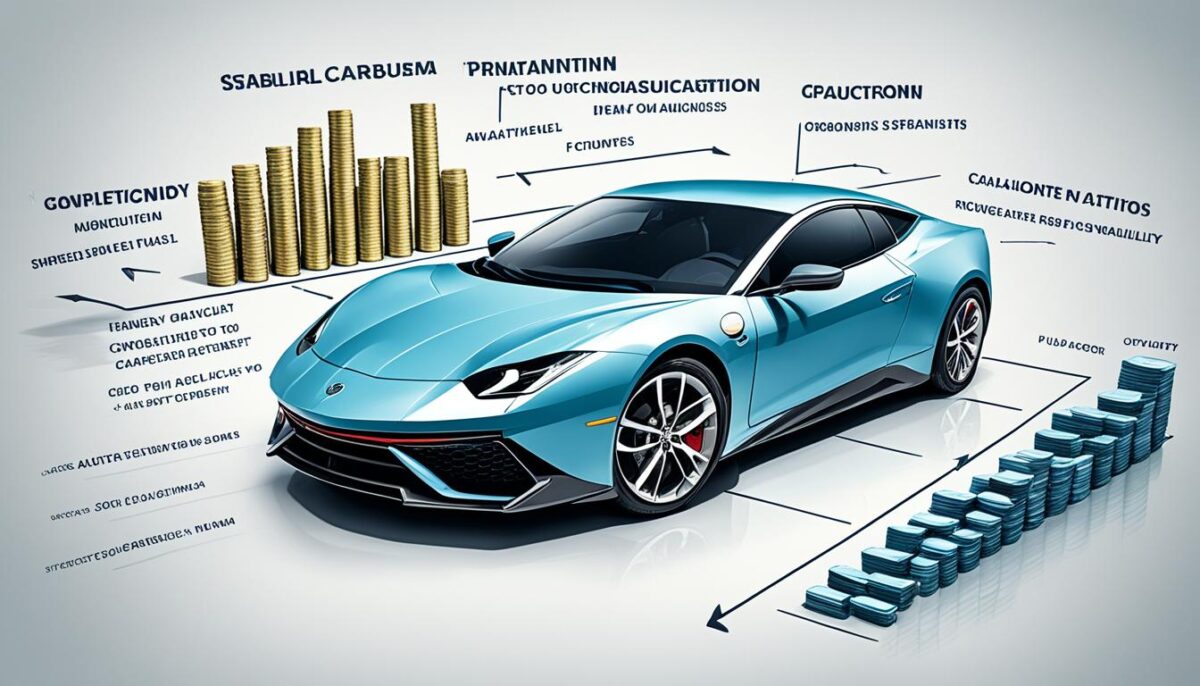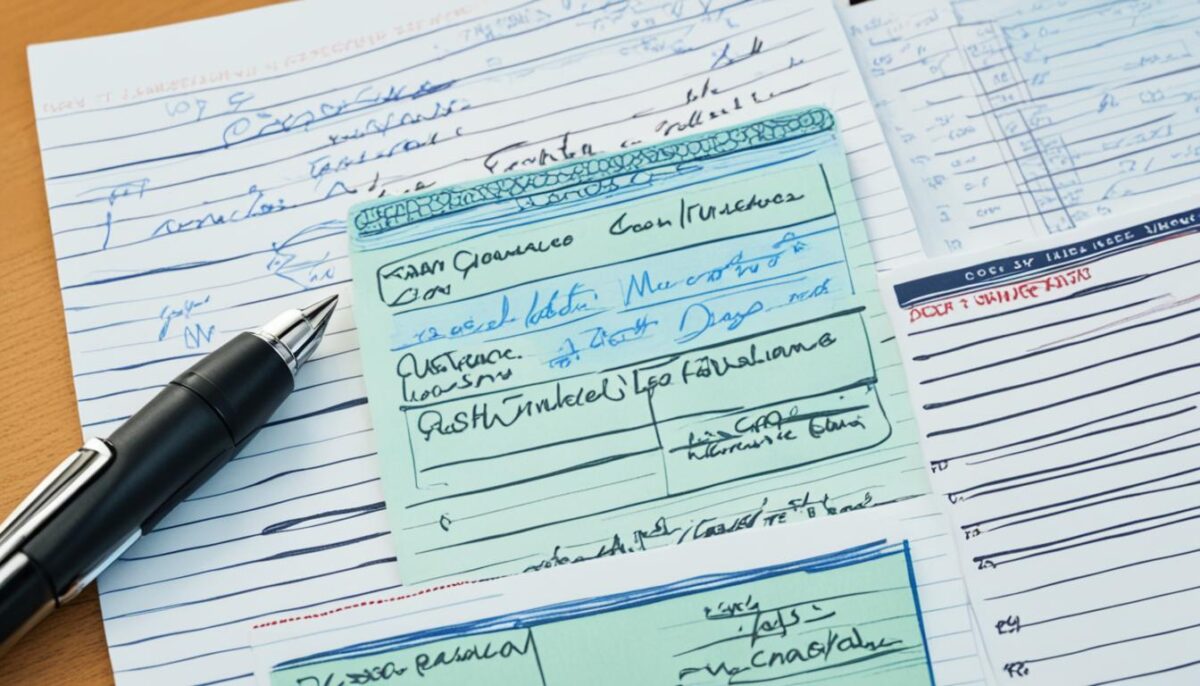In this section, we will discuss the necessary requirements for attending a wholesale car auction. Whether you’re a seasoned buyer or a first-time attendee, understanding what is needed to participate in these auctions is essential.
At wholesale car auctions, you’ll find a wide selection of vehicles, ranging from cars, trucks, SUVs, to luxury vehicles and more. These auctions are a great opportunity to find quality vehicles at competitive prices. However, before you can join in the bidding excitement, there are a few key requirements you’ll need to meet.
Registration Process and Documentation
Before you can attend a wholesale car auction, it is important to go through the registration process. This ensures that the auction organizers have all the necessary information about you as a participant. The registration process is straightforward and requires you to provide certain documentation. Here is a step-by-step guide to help you navigate the registration process smoothly:
- Gather the required documentation: To complete the registration process, you will need to bring along the following documents:
- Driver’s license: A valid driver’s license is a primary form of identification that verifies your ability to legally operate a vehicle.
- Proof of insurance: You may be required to provide proof of insurance coverage to participate in the auction. This ensures that you have the necessary coverage to protect yourself and others in case of any incidents.
- Valid identification: Bring a valid form of identification, such as a passport or state-issued ID, to verify your identity.
By following these steps, you will be well-prepared for the registration process at a wholesale car auction. Always make sure to check the specific requirements of the auction you plan to attend, as documentation requirements may vary.
Now that you understand the registration process and necessary documentation, you are ready to make the most of your wholesale car auction experience. Continue reading to learn about the importance of proof of funds and accepted payment methods at these auctions.
Proof of Funds and Payment Methods
When attending a wholesale car auction, it is essential to have proof of funds to demonstrate your financial ability to purchase the vehicles you are interested in. Auction organizers require bidders to provide this proof as it ensures a smooth and efficient auction process.
Proof of funds typically consists of bank statements or a letter from your financial institution stating your available funds. This document shows that you have the necessary resources to make the required payment should you win a bid. It is crucial to have this documentation ready before attending the auction to avoid any delays or complications.
Accepted payment methods may vary depending on the auction house. Common forms of payment include cash, certified bank checks, and wire transfers. It is essential to familiarize yourself with the specific payment methods accepted at the auction you plan to attend.
Image with alt tag: Proof of funds

Having the necessary funds available is not only important for your participation in the auction but also for maintaining the auction’s integrity. It ensures that bidders are serious and capable of fulfilling their financial obligations.
When preparing your proof of funds, it is advisable to have funds readily available, secure financing options, or establish a line of credit if needed. This allows you to act swiftly and confidently during the auction, increasing your chances of securing the vehicles you desire.
Payment Methods Comparison
| Auction House | Cash | Certified Bank Check | Wire Transfer | Credit/Debit Card |
|---|---|---|---|---|
| Auction House A | ✅ | ✅ | ✅ | ❌ |
| Auction House B | ✅ | ✅ | ✅ | ✅ |
| Auction House C | ✅ | ✅ | ✅ | ❌ |
The table above provides a comparison of accepted payment methods at different auction houses. As you can see, the availability of credit/debit card payments may vary. It is crucial to check with the specific auction house you plan to attend to ensure you are prepared with the appropriate payment method.
Remember, having proof of funds and being aware of the accepted payment methods will streamline your experience and allow you to focus on finding the best deals at the wholesale car auction.
Auction Etiquette and Insider Tips
Attending a wholesale car auction can be an exhilarating experience, especially if you’re new to the scene. Understanding auction etiquette and being armed with insider tips can greatly enhance your chances of success. Whether you’re looking to buy a car for personal use or to resell, these guidelines will help you navigate the auction process smoothly and secure great deals on the vehicles you’re interested in.
Auction Etiquette
1. Respect the Auctioneer: The auctioneer plays a crucial role in keeping the auction organized and moving. Show respect by refraining from disruptive behavior, following their instructions, and paying attention to their announcements.
2. Observe Bidding Increments: Understanding the bidding increments is essential to avoid overpaying for a vehicle. Familiarize yourself with the auction’s bidding structure and increment rules to place strategic bids.
3. Don’t Reveal Your Limit: It’s crucial to keep your maximum bidding limit a secret. Revealing your limit may invite aggressive competition and drive up the prices. Maintain a poker face during the bidding process to keep your intentions discreet.
4. Bid Confidently: Make your bids with confidence and clarity. Raise your hand or paddle clearly so that the auctioneer can see your bids. This will help in avoiding any confusion and ensure your bid is acknowledged.
Insider Tips
1. Research the Vehicles: Conduct thorough research on the vehicles you’re interested in before the auction. Know their market value, condition, and any potential issues they may have. This will empower you to make informed decisions and bid confidently.
2. Inspect Before Bidding: Take advantage of the pre-auction inspection period to carefully examine the vehicles. Look for any signs of damage, mechanical issues, or inconsistencies in the vehicle history. Being aware of the vehicle’s condition will help you avoid costly surprises.
Insider Quote: “Research and inspection are key in the auction business. Knowing the market value and condition of the vehicles can make a big difference in securing a profitable deal.” – John Anderson, experienced auction buyer
3. Set a Budget and Stick to It: Determine a budget for yourself before attending the auction and resist the temptation to exceed it. It’s easy to get caught up in the excitement of bidding, but sticking to your budget ensures you don’t overspend and maximize your profit potential.
4. Attend Simulated Auctions: If you’re new to auctions, consider attending simulated auctions or practice sessions offered by auction houses. These sessions provide valuable hands-on experience and help you get comfortable with the pace and dynamics of a live auction environment.
Above: Attendees observing auction etiquette during a wholesale car auction.
| Tips for Success | Insider Insights |
|---|---|
| Stay focused and patient throughout the auction. | “Patience and focus are crucial during auctions. Don’t rush into bidding; rather, wait for the right moment to make your move and secure the best deal.” – Maria Rodriguez, auction expert |
| Arrive early to secure a seat with a good view of the auctioneer. | “Getting a good view of the auctioneer is essential for keeping up with the pace and staying engaged. Arrive early to choose a strategic spot that suits you well.” – Michael Thompson, seasoned auction attendee |
| Network with other attendees and learn from their experiences. | “Networking at auctions can provide valuable insights and opportunities. Engage with fellow attendees, listen to their stories, and gain knowledge from their experiences.” – Sarah Lewis, auction enthusiast |
Preparing for the Auction Day
Preparing for the auction day is essential to ensure a successful experience. At [Brand Name], we understand the importance of thorough preparation to help you make informed decisions and increase your chances of finding the right vehicle at the auction. In this section, we will guide you through the necessary steps to get ready for the auction day.
1. Conduct Thorough Research
Prior to attending the auction, conduct comprehensive research on the vehicles you’re interested in. This will enable you to identify the make, model, year, and other specific details that align with your preferences. Make a list of potential vehicles and gather as much information as possible, including market values, vehicle history reports, and any available photos. This research will empower you to make well-informed decisions during the bidding process.
2. Set a Budget
Establishing a budget is crucial to avoid overspending and to ensure you stay within your financial limits. Analyze your finances and determine the maximum amount you’re willing to spend on a vehicle. Be mindful of additional expenses such as auction fees, transportation costs, and potential repairs. Setting a budget will help you narrow down your options and focus on vehicles that are within your price range.
3. Inspect the Cars
Arriving early to inspect the cars is highly recommended. Take advantage of the preview period offered by the auction house to closely examine the vehicles you’re interested in. Inspect the exteriors, interiors, and engine compartments for any signs of damage, wear and tear, or potential maintenance issues. If you’re not confident in assessing the condition of the vehicles, consider bringing along a trusted mechanic or knowledgeable friend to assist you in the inspection process.
Pro tip: Take notes and pictures during the inspection to refer back to when making your final decisions.
4. Bring the Necessary Documents
To participate in the auction, ensure you have all the required documentation. This typically includes a valid driver’s license, proof of insurance, and a registered bidder’s identification. It’s important to double-check the specific document requirements with the auction house beforehand to avoid any confusion or delays on the day of the event.
5. Dress Comfortably
Wearing comfortable attire is recommended for the auction day. You may spend several hours on your feet, inspecting vehicles, and engaging in the bidding process. Opt for comfortable shoes and clothing that allows ease of movement. Dressing in layers is also advisable in case the auction venue has varying temperatures.
6. Prepare Your Financing Options
Being prepared with your financing options is crucial to swiftly finalize your purchase. Determine your preferred payment method, whether it’s cash, certified check, or financing. If you plan to finance the vehicle, explore your loan options beforehand and secure any necessary approvals. This will streamline the payment process and make it easier to complete your purchase on the auction day.
By following these steps, you’ll be well-prepared for the auction day and increase your chances of successfully buying the vehicle of your choice. In the next section, we will discuss the post-auction procedures and ownership transfer requirements. Stay tuned!
Post-Auction Procedures and Ownership Transfer
After a successful bid and winning a vehicle at a wholesale car auction, there are several important post-auction procedures and ownership transfer processes that need to be completed. It is crucial to follow these steps to ensure a smooth purchase experience and legal ownership of the vehicle.
Let’s dive into the key steps involved in post-auction procedures and ownership transfer:
1. Paperwork Documentation
As the buyer, you will need to complete the necessary paperwork to finalize the transaction. This typically includes filling out purchase and sale agreements, providing identification documents, and signing any required legal documents.
2. Title Transfer
One of the most critical steps in the ownership transfer process is the title transfer. The title of the vehicle must be legally transferred from the seller to the buyer to establish the new ownership. You will need to follow the specific guidelines provided by your local Department of Motor Vehicles (DMV) to complete this process.
3. Payment Finalization
Completing the payment for the purchased vehicle is an essential part of post-auction procedures. Ensure that you have the necessary funds ready and follow the auction’s accepted payment methods. Whether it’s a wire transfer, cash, or a certified check, make sure to adhere to the auction’s payment policies.
4. Arranging Transportation
Once you have completed the paperwork, title transfer, and payment, the next step is to arrange transportation for your newly acquired vehicle. Many wholesale car auctions do not provide shipping services, so it’s important to make your own arrangements for transporting the vehicle to your desired location. You can hire a transport service, drive the vehicle yourself, or use a third-party delivery service.
Now that you are familiar with the post-auction procedures and ownership transfer, you are well-prepared to complete the purchase process after winning a vehicle at a wholesale car auction.
With these essential steps, you can confidently proceed with the necessary paperwork, execute the title transfer correctly, finalize payment, and arrange transportation for your newly acquired vehicle.
Keep in mind that each auction may have its specific requirements, so it’s important to consult the auction house or website for any additional instructions or procedures.
Car Auction Checklist and Additional Resources
Attending a wholesale car auction requires careful preparation to maximize your chances of success. To help you stay organized and ensure you have everything you need, we have created a comprehensive car auction checklist. This checklist covers essential items and information that you should bring with you to the auction:
- Valid identification: A government-issued ID, such as a driver’s license or passport, is required to register and participate in the auction.
- Proof of funds: Ensure you have the necessary funds readily available or have arranged financing if needed. Carry a certified check or proof of pre-approved financing to demonstrate your financial capability.
- Auction catalog: Obtain the auction catalog in advance or on-site, which provides detailed information about the vehicles available for bidding, including make, model, year, condition, and estimated value.
- Research notes: Bring notes from your vehicle research, including VIN numbers, vehicle history reports, and any other relevant information to help you make informed decisions during the auction.
- Pen and notepad: Take notes during the auction to remember important details about the vehicles you’re interested in, including bidding history and final sale prices.
- Comfortable attire and footwear: Dress comfortably and wear suitable footwear since you may spend several hours walking and standing at the auction venue.
- Bidding strategy: Plan your bidding strategy in advance. Set a maximum bid limit for each vehicle you’re interested in and stick to it to avoid overspending.
- Inspection tools: Carry a flashlight, vehicle inspection checklist, and a small mirror to help you thoroughly examine the cars before bidding.
- Transportation arrangements: If you anticipate winning a vehicle, make arrangements for transportation beforehand. You may need to hire a tow truck or arrange for a temporary license plate.
By using this checklist, you’ll be well-prepared and organized for the auction day, increasing your chances of making successful purchases. However, the checklist is just the beginning! To further enhance your auction experience and expand your knowledge of the industry, we recommend exploring the following additional resources:
- Carfax: Access vehicle history reports to uncover important information about a vehicle’s past, including accidents, title issues, and mileage readings.
- Edmunds: Get expert automotive advice, reviews, and pricing information to help you make informed decisions during the auction.
- Edmunds True Market Value®: Use Edmunds’ True Market Value® tool to estimate a vehicle’s fair market value, providing insights into its pricing competitiveness at the auction.
These resources will empower you with valuable knowledge and insights, ensuring you have a competitive edge at the wholesale car auction. Happy bidding!

Conclusion
Congratulations! You are now well-equipped with the knowledge and understanding of what is required to attend a wholesale car auction. By following the outlined requirements, tips, and procedures, you’re ready to embark on your journey of snagging great deals on vehicles.
Attending a wholesale car auction can be an exhilarating experience filled with excitement and the potential to find your dream vehicle at a fraction of the price. Remember to thoroughly research the cars you’re interested in and set a realistic budget to ensure a successful bidding experience.
With your proof of funds in place and a good understanding of auction etiquette, you’ll be ready to navigate the auction floor confidently. Don’t forget to arrive early to inspect the cars and make informed decisions.
We hope our comprehensive guide has provided you with valuable insights, tips, and resources to make the most out of your wholesale car auction experience. Happy bidding!

